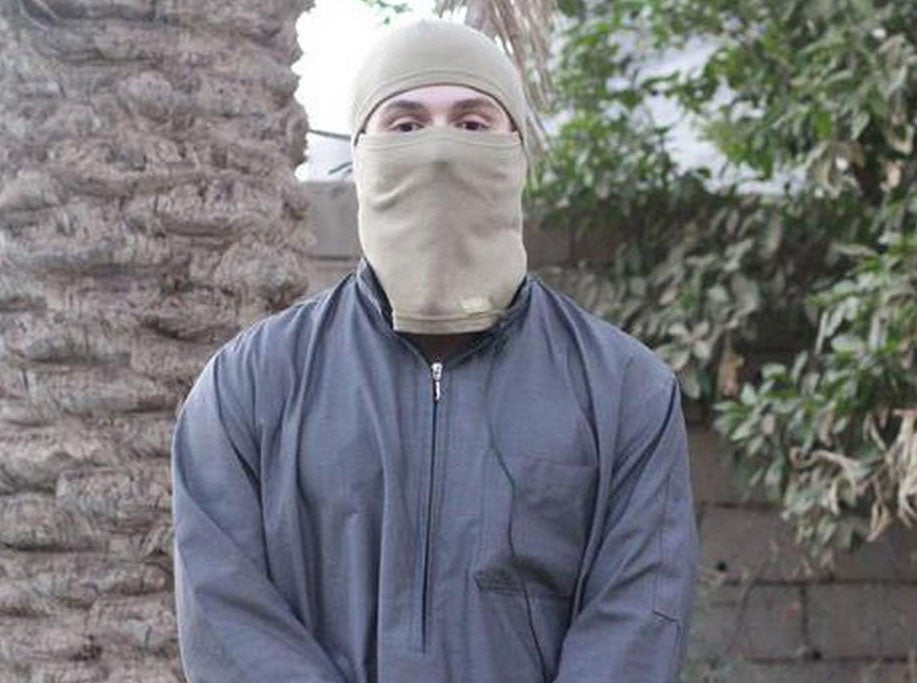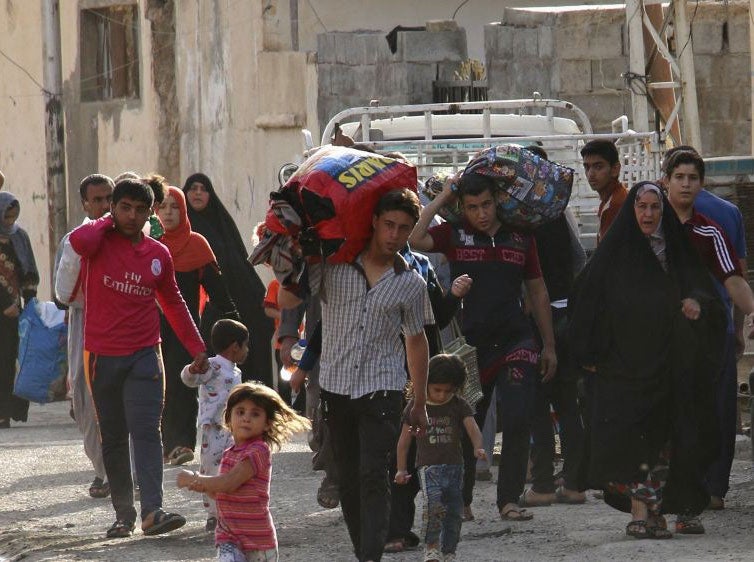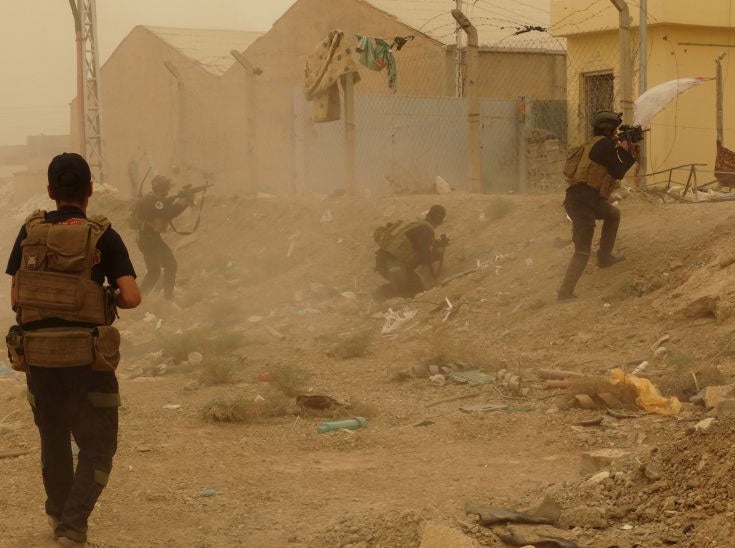British Isis fighter Abu Musa al-Britani 'blows himself up in suicide bombing' in Ramadi
Isis has taken control of much of the former government stronghold

A British Isis fighter has reportedly blown himself up in a suicide bombing during the group's offensive on a government stronghold in Iraq.
The so-called Islamic State released pictures of the man, known by his chosen pseudonym Abu Musa al-Britani, on social media today calling him a “martyr”.
He is said to have taken part in one of a number of strikes by the group as it moved into Ramadi.
Charlie Winter, a researcher at the Quilliam Foundation, said the death was announced on official Isis media channels.
Scotland Yard has revealed that more than 700 British extremists have travelled to Syria, with a “significant proportion” making the trip in order to join Isis.
The extremist group claimed it had carried out several attacks on Ramadi, using suicide bombers driving cars.
A Humvee packed with explosives targeted the local government’s education department, another car bomb hit the police headquarters and a third was detonated at the western entrance to the compound.
Three more car bombs blew up near the Anbar Operations Command.

Militants are now reported to hold much of the city centre, raising their black flag over local government headquarters and claiming victory over loudspeakers from a mosque.
An anonymous general from the Iraqi army said Isis had taken control of the only major supply route into the city, making it difficult for the government to send reinforcements.
Iraqi forces had retreated to near an operational command centre to protect it, he said, but some elite counter-terrorism forces were surrounded and “fighting for their lives” in the Malaab district of central Ramadi.
“If the government does not send any reinforcements and the coalition air force does not rescue us, we will lose all of Ramadi by midnight,” the major said.
“A massacre will take place and all of us will be slaughtered. We have been defending the city for months and we don't deserve to end like this. It's humiliating.”

The assault started overnight using the six car bombs to reach the city centre and continued with militants on foot, while government forces were still in control of the military command centre to the west of the city.
“The situation in Ramadi is dire, but the city has not fallen and the battle against criminal Daesh (Isis) is still ongoing,” Anbar governor Sohaib al-Rawi said on Twitter.
Ramadi, the capital of Anbar province, is just 60 miles west of Baghdad.
It would be a strategic conquest for the group at a time when opponents hoped US-led air strikes and Kurdish and army operations were slowing its advance across Iraq and Syria.
Ramadi would be the first major city seized by the insurgents in Iraq since security forces and paramilitary groups began pushing them back last year.
It has been the site of vicious battles for months but the insurgents renewed their offensive there in April, crushing government forces' efforts to retake Iraq's largest province of Anbar and use it as a foothold to move north towards Isis’ stronghold of Mosul.
Prime Minister Haider al-Abadi met with military and security leaders as well as the heads of the air force and counter-terrorism on Friday and pledged to intensify efforts to “expel the terrorist gangs from Ramadi”.
Additional reporting by agencies
Join our commenting forum
Join thought-provoking conversations, follow other Independent readers and see their replies
0Comments